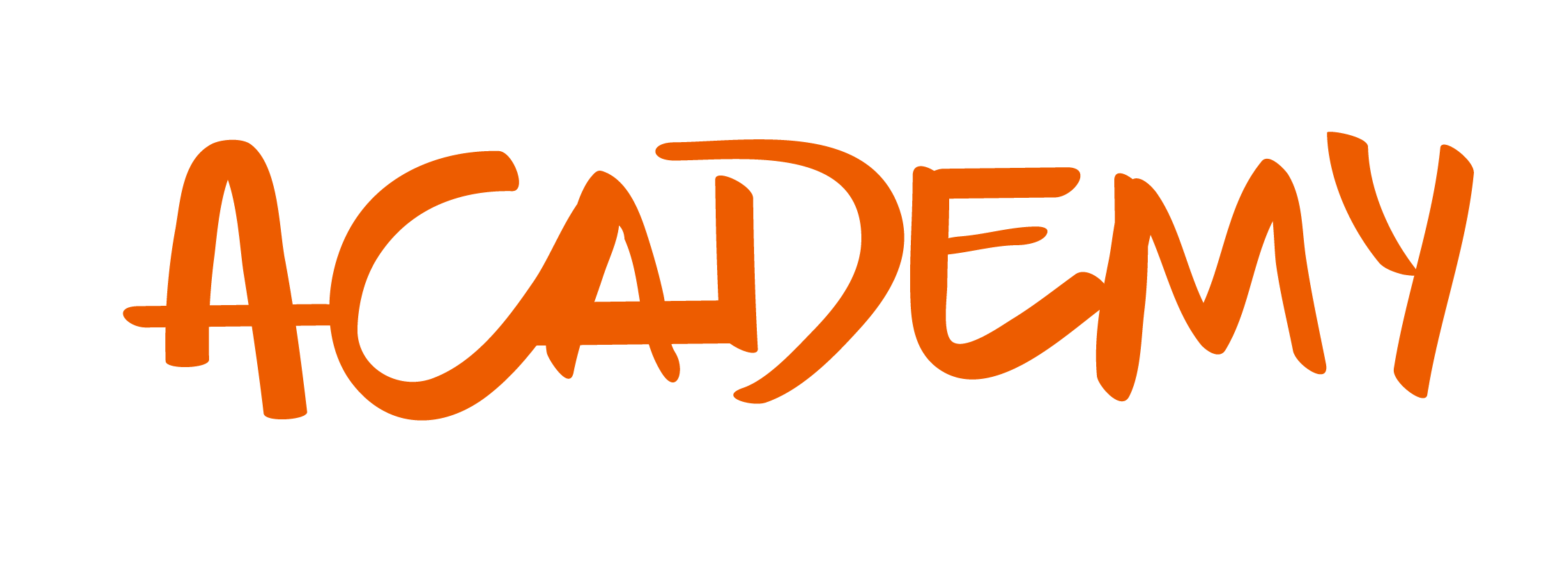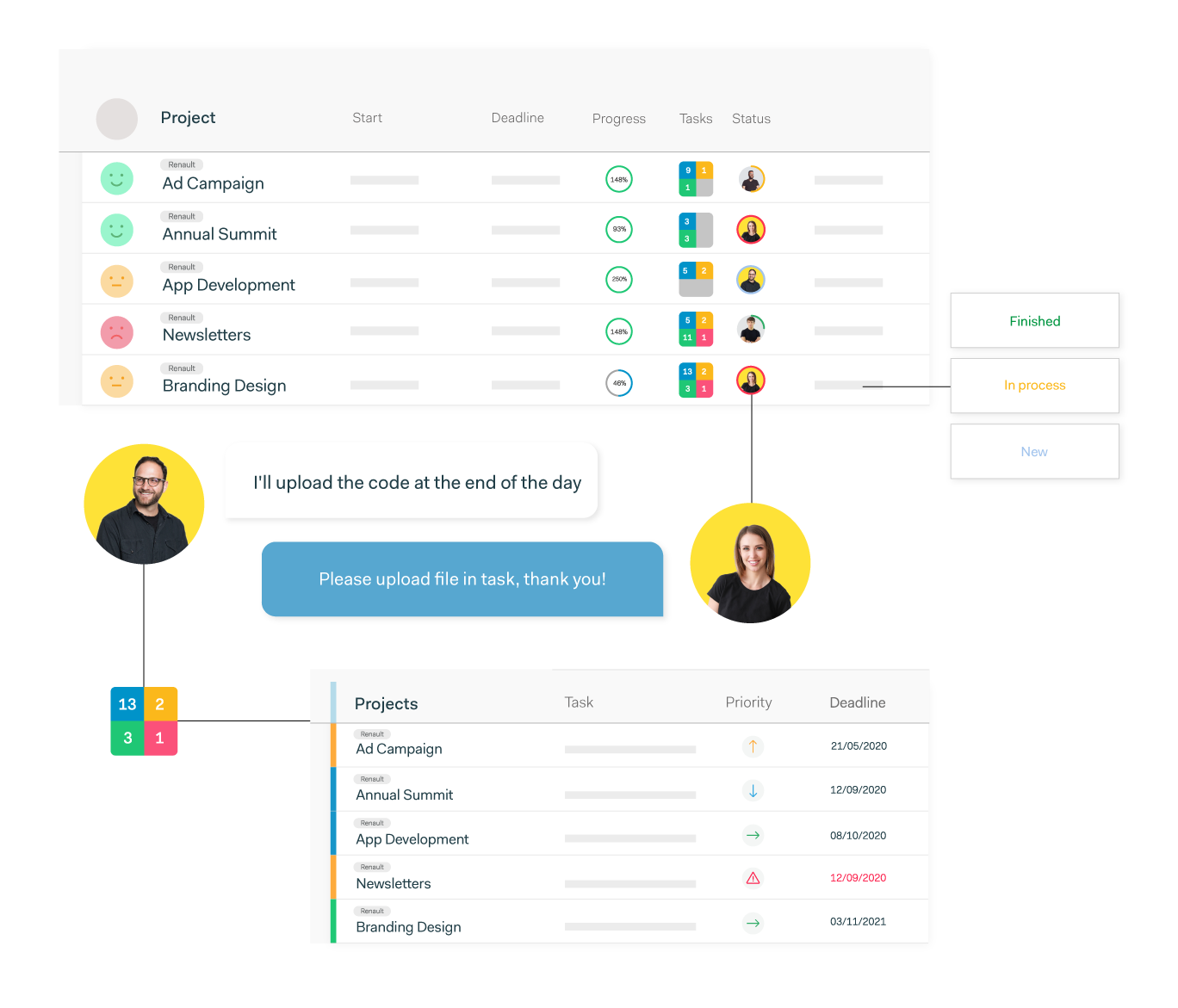
Project Management is COR’s leading feature and the starting point for a full-scale and all-encompasing tool that will help your business every step of the way.
Preview the project management process, the team in charge, the status, its frequency, and the budget assigned for each one.
Our project management tool calculates the profitability and updates it automatically. Allowing you to detect any deviation that could affect the profitability of each project.
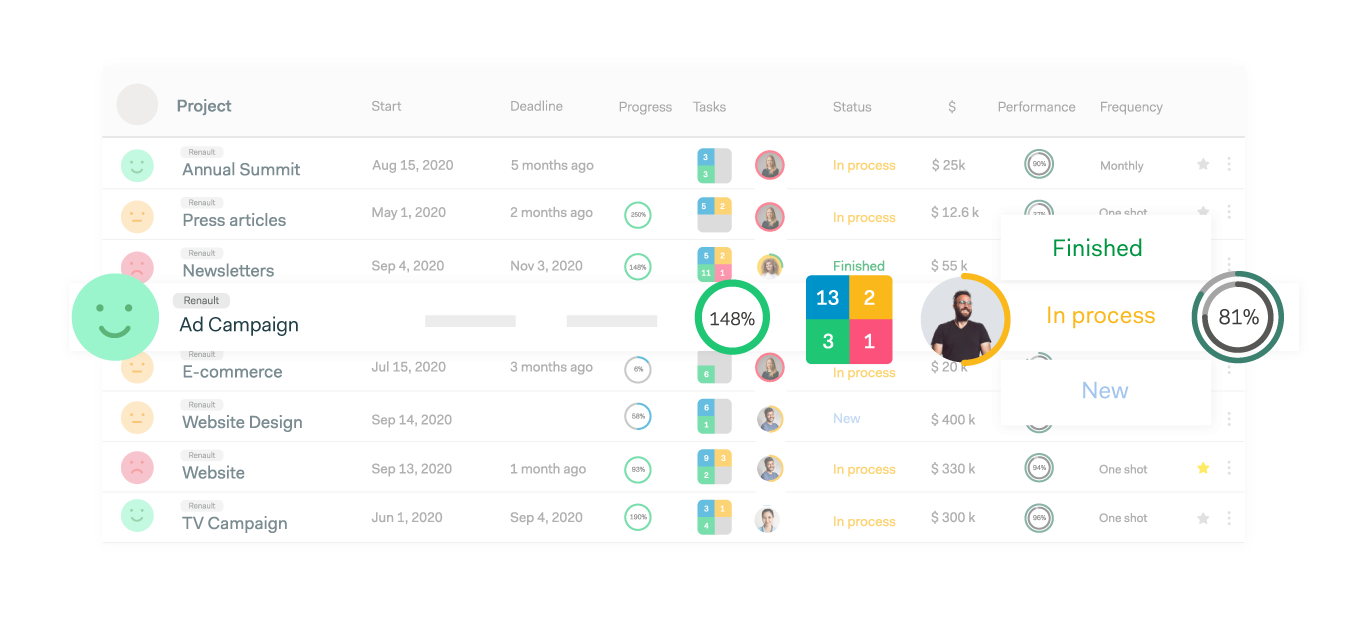
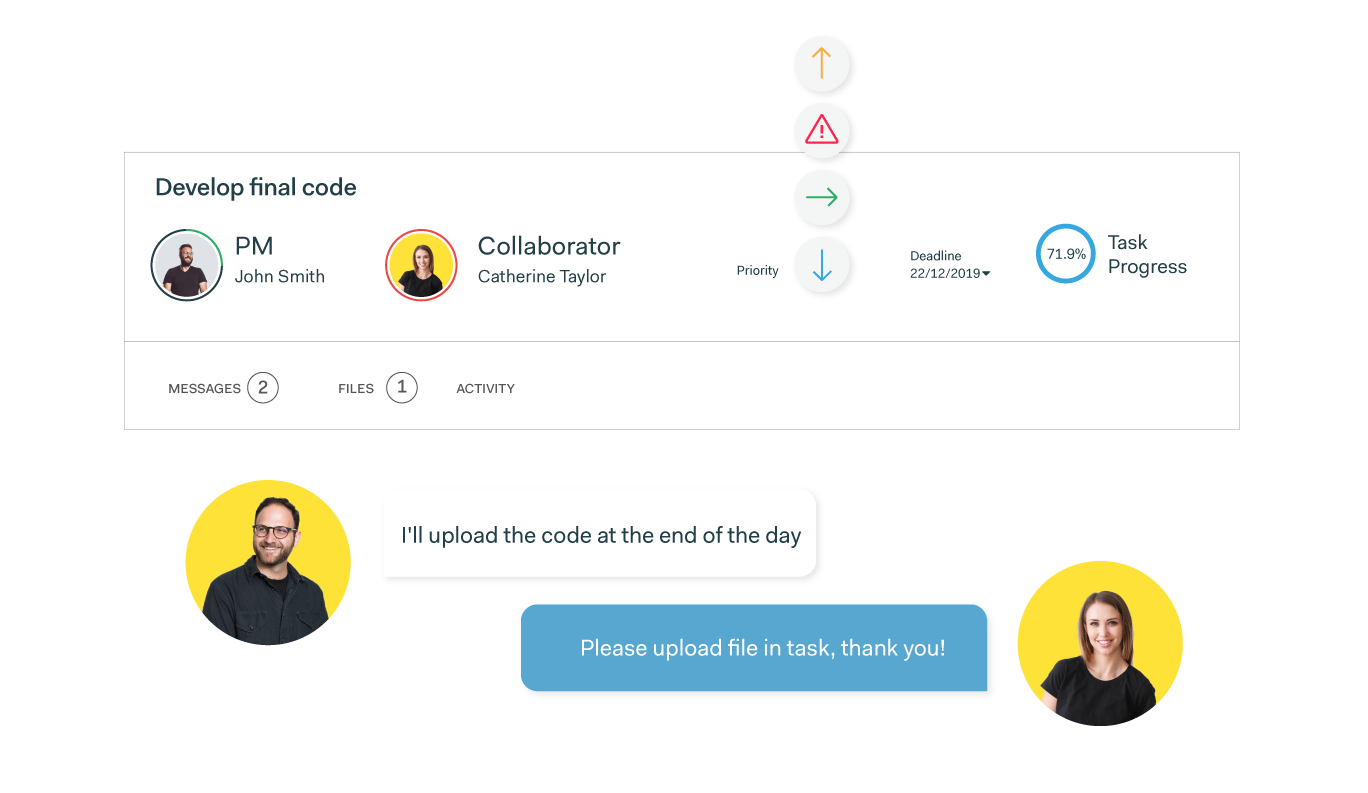
Help team members and collaborators get anything they need, at a one-stop guarantee. It organizes the work in a customized way and presents it in an intuitive and adjustable dashboard.
Supports and complements project management skills: Assign responsibilities, set deadlines, order by priority, attach files, messages, mark the state in which each of your tasks is and allows the active collaboration of your client.
Automates task creation through project templates.
With our customizable project template feature, it is possible to create a complete project with a single click: The pertinent tasks, their team allocation, an estimated budget, task dependencies, and the overall duration of it.
Each feature in COR is carefully crafted in order to support businesses to achieve standardization in their operation, a streamlined project management methodology, and to recover billable hours wasted on manual tasks that can easily be automated by the tool’s AI.
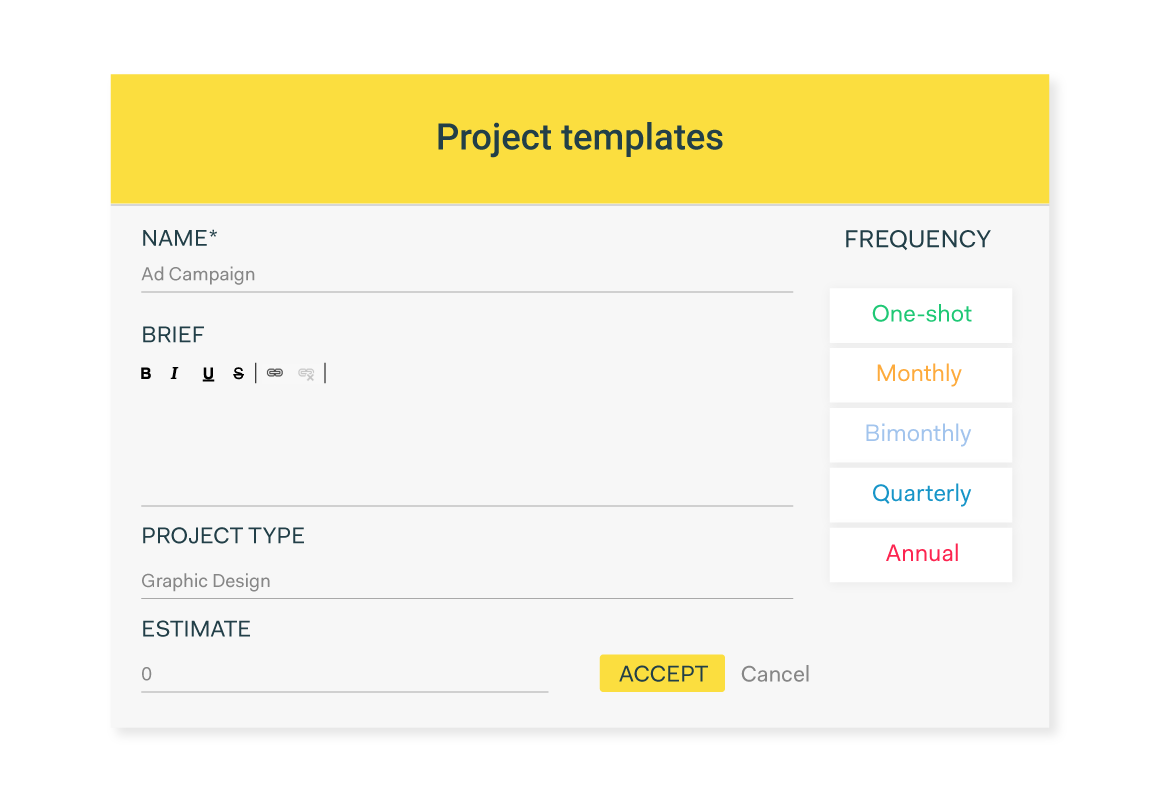
Our Clients say





Our Integrations
Frequently Asked Questions
Project Management is a discipline based on 4 critical pillars: organization, planning, motivation, and resource management. The goal of project management is to guide a project to completion throughout every step of its life cycle, and within the given budget, time, and quality standards. The overall purpose of project management goes one step beyond the simple completion of every deliverable, it requires the implementation of a methodology in order to continue communication within teams and areas. A great Project Manager can analyze what went sideways, what took longer, or what tasks were more demanding, for example. And thus, the next time they tackle a project they can gain valuable insight on what is the best way of moving forward.
If we get down to the core aspects and definition of a project manager’s role, profitability is not at its center. Project managers take care of a project, from beginning to end, and the operational capability of every service is an ongoing responsibility, it does not end with each project.
An important part of project management work includes following a quality standard for deliverables, measuring KPIs, and writing status and final reports. So we can see that there’s a shared point where project management touches upon profitability analysis. But that type of responsibility is decided by higher levels.
The responsibilities of a PM include:
- Constant communication with team members in order to know the status of the project.
- Problem identification and solution, to ensure the project is running as smoothly as possible.
- Reporting to supervisors, stakeholders, teams, and themselves. Creating reports is a key aspect of a PM’s role since it is the best way of avoiding bad practices in the future.
- Team building in order to take care of the talent, and their projects, and make sure they are doing OK within their specific role.
There are two distinct paths toward becoming a project manager. The first and more obvious of the two is for people interested in becoming one to get formal education and training in an institution or even within a talent training program if their company offers one. The second path is not uncommon, it involves people who have found themselves in a PM role for which they have not been academically trained, but have shown managing skills and a leadership aptitude. The latter group could have followed a career path inside their business and have reached a management position. Both sets of people can become great PMs and with training and experience can reach their best.
Agile Project Management is a method of planning and conceptualizing projects into iterative smaller cycles called sprints, or iterations, which allows for a segmented completion of a project. An iteration refers to one development cycle, each one is reviewed by the project team, and any insight gained by this critique is employed in planning the next step of the project. One of the benefits of agile management is being able to respond to unforeseen issues that arise within the project life cycle as fast as possible. Having the iterations lets the team take a moment to assess how to carry on without losing resources and deliver a project on time and within budget.
Project management done right can not only help a business run more smoothly, it can help increase profitability, reduce employee oversaturation, increase talent retention, and improve client relationships.
Employees benefit from a transparent project plan, and that company clarity can also help them see how their work influences the company’s strategic goals and the role they play in shaping them.
The role PMs play is even more crucial than ever, with the rise of remote or hybrid teams working together can be a harder goal to reach. With the right leadership, motivation, conflict management, and organization these teams can reach their mission with harmony and without oversaturation.
There are many skills, soft, hard and technical, that any PM could always improve upon, but the most important knowledge a project manager can have is the ability to consistently estimate and scope projects. This can be accessed by a combination of experience and having the appropriate data. From this capability, a lot of the more common difficulties of the role are more approachable. Scheduling and planning become easier and the risk of missing deadlines is diminished. The talent is then less likely to suffer oversaturation and burnout, having the possibility of performing at the top of their ability. Having this clarity and transparency also facilitates better resource and time management. As well as getting a better bond with clients and taking great care of the business’s profitability.
Accessing this data is easier with PM tools and software, it is rare to find a modern business not using at least a management app. The best way of getting the necessary knowledge for developing the best PM methodology for your business is by investing in a tool that will grant you all the required information: resource management, profitability estimation, scheduling capabilites, and time tracking.
More About Project Management

Why Do Small Agencies Need Project Management?

Project Management 2022: Complete Guide and How to Success

How to Implement Project Management in the Ad Agency Model


